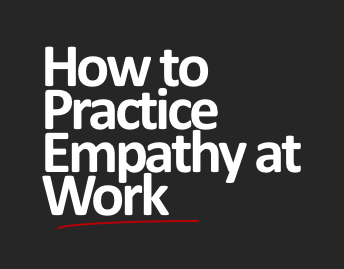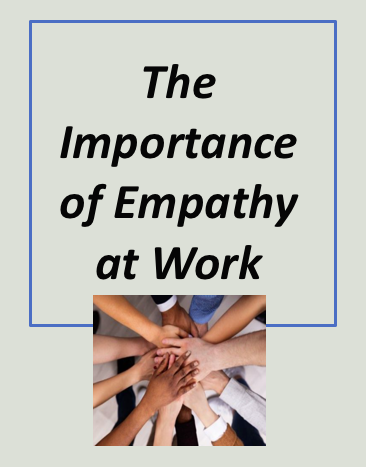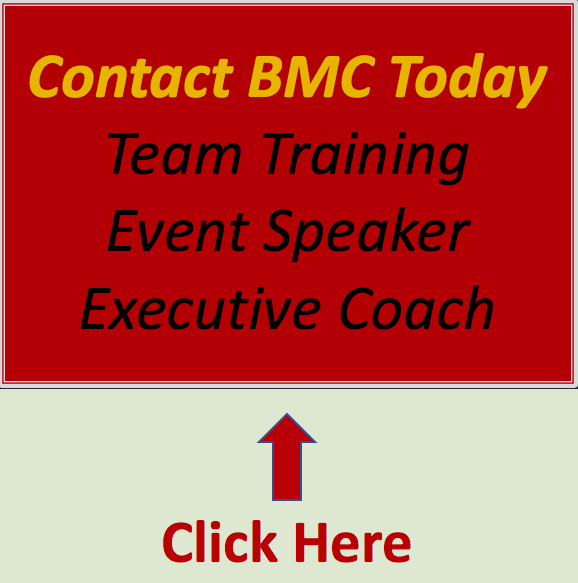My 8 Habits of Highly Empathic People
/Have you ever felt you just needed someone to hear you – to listen to what you were feeling or experiencing and to not judge you, offer advice or problem solve? Sometimes all we need is for people to respect us enough to acknowledge that what we are experiencing is real to us even if they can’t relate to or fully understand what we are going through.
I recall a conversation with a great friend about a time when they were having a heated disagreement with their partner at home. My friend was not feeling they mattered or was being respected. During this disagreement their partner kept saying, “Just tell me what you want me to say.” My friend said this frustrated them even more. They felt disrespected because (in their words) “My feelings and needs were being treated like an equation, that whenever I said X that my partner should respond with Y and all would be fine”. My friend had not studied emotional intelligence or empathy, but they knew that their feelings were not linear and predictable. All my friend wanted was to trust that they mattered enough that they could share what they were experiencing with their partner and to feel respected and safe… even if their partner didn’t fully understand their feelings and needs.
The example I share with you is clearly a personal one, but it would not take much to imagine a similar workplace disagreement. Lets face it, workplaces are filled with policies, guidelines and rules. And while policies, guidelines and rules are important to healthy workspaces, so are things like trust, patience, care and respect to help everyone know they matter.
This month I’ve focused much of my writing on the topic of empathy. Some of my other recent posts are ‘The Importance of Empathy at Work’ and ‘How to Practice Empathy at Work’. I also have one called ‘The Role of Empathy During Difficult Conversations’ on the drawing board that I expect to publish soon. But for this article I felt it important to share an example of our need for empathy and to outline 8 habits of highly empathic people and how these habits can help build relationships based on positivity and respect because we are all capable of empathy and we are all in need of empathy.
My 8 Habits of Highly Empathic People
Habit 1: Empathetic people are intentionally curious about other people, places, how things are done… and why. They see life as a collection of experiences and that growth and change are what help us evolve, stay healthy and stay interesting.
Habit 2: Empathetic people openly embrace opportunities to authentically experience how other people live, eat, work, rest and play. They know that their needs, feelings, experiences, likes and dislikes are unique to themselves and that there is a great opportunity for them to both learn from other people as well as teach other people.
Habit 3. They spend time trying to understand their own emotions in order to understand their own motivation, communication style, actions and impact. They know that their greatest accomplishment is to know themselves and that as they learn about themselves they are able to build better relationships with other people.
Habit 4. They challenge their own prejudices and biases – looking instead for goals, needs, experiences and/or feelings we have in common. Empathic people realize that as humans, it is natural and often healthy to have prejudices and biases that help us quickly respond to opportunity or danger. But, empathic people also know there are many times when we have to overcome some of our learned prejudices and biases so we (and others) can grow and be amazing.
Habit 5: Empathic people embrace growth, imagination and new ideas. Empathic people also know that some of us have an insatiable appetite for growth and change while others (like my mother) approach change slowly… and all approaches are OK.
Habit 6. They do what they can to help other people feel safe and respected, especially if they don’t agree with them. Empathic people find time to be with other people without needing to understand them, change them or fix them.
Habit 7. Empathic people listen without needing to speak, problem solve or push their agenda. They watch body language and what someone may be saying, not saying and needing. Instead of commenting they ask open-ended questions or may just stay silent and present.
Habit 8: They spend time trying to understand the emotions others may be experiencing in order to understand their own motivation, communication style actions and impact. As part of their own learning cycle they see communication as a way to learn about and support other people as well as an opportunity to learn about and support themselves.
Lets just be clear there is a difference between kindness and empathy. For example:
Getting a coffee for a coworker when you are going for one yourself is kindness.
Getting a coffee for a coworker who is struggling to meet a deadline, loves their morning coffee and hasn’t had a chance to get away from their desk is kindness and empathy.
Getting a coffee for your boss to gain favour is sucking up.
Why Studying Empathy Is Important
I believe studying empathy is important because it is what binds us together. As Jo Cox, a famous British Member of Parliament who fought for social justice and equality said, “We have more in common than what divides us”. Looking at what we have in common used to be easy, but in today’s global, digital, hyper-connected, hyper-disconnected, instantaneous and often competitive world, it is easy to only see what is different and separates us.
Empathy helps build trust and respect. And even when this process is slow, when we strive to understand and trust each other we are more likely to work together to find collaborative, mutually beneficial, Win-Win solutions. The alternative is Win-Lose, and why should we settle for Win-Lose when Win-Win is an option?
Studying empathy is important because it is in decline. A study by the University of Michigan Institute for Social Research combined the results of 72 different studies between 1979 and 2009. Using meta-analysis researcher Sara Konrath found that participants in 2009 were 40% less empathetic than participants in 1979, and the steepest decline in empathy took place over the last decade.
In our world today we are often disconnected from those around us. This starts early as more and more children are entertained and communicate almost exclusively using smart phones and smart pads instead of watching and engaging with people around them. Just the other day I was in a restaurant and a small child around 3-years old was consumed with playing a game on a tablet while their parents ignored them and talked among themselves. How is that child going to learn how to recognize feelings (their own and others) and then also learn how to express and manage them when they are shut off during their most impressionable time of their lives? I recall when I was young my parents would not even allow the TV or radio to be on during a meal which in retrospect I am very grateful.
Conclusion
I’d like to leave you with one final thought. Empathy is like a muscle; sometimes situations are so familiar like when we pick up a glass we don’t even realize we are using our strength. But often we find ourselves needing a bit more strength to lift heavy things or a delicate touch when dealing with something fragile. When it comes to empathy, many of us are good with the average please and thank you, but more often than we forget we need to pay attention to our emotional strength. Perhaps it will be an argument with our partner or it will be discussing a difference of opinion with coworkers; whatever the situations are, these are times when our previous investment into understanding and expressing our empathy ‘muscle’ will be important.
In those cases, I hope that following these habits of highly empathic people can help you exercise your empathy and keep in mind how to keep trust, patience, care and respect in mind.
Thank you for reading about my 8 habits of highly empathic people.
Bruce
Other articles in this series include:
About Bruce and Bruce Mayhew Consulting.
Bruce is Corporate Trainer, Keynote Speaker and Executive Coach.
Bruce Mayhew Consulting specializes in customized Difficult Conversations, Crucial Conversations or Conflict Management Training, Email Etiquette Training, Leadership & New Leadership Development, Generational Differences, Time Management Training and other soft skills training solutions in Toronto and across Canada. Bruce is also an Executive Coach to a few select clients.
Bruce is an experienced motivational speaker in Toronto and has inspired audiences across Canada and within the USA and the UK. Bruce works hard to always make sure your training event, conference, retreat, or annual general meeting is a success.





